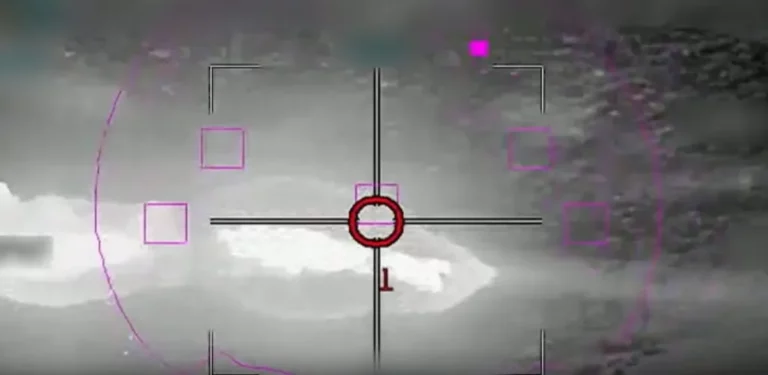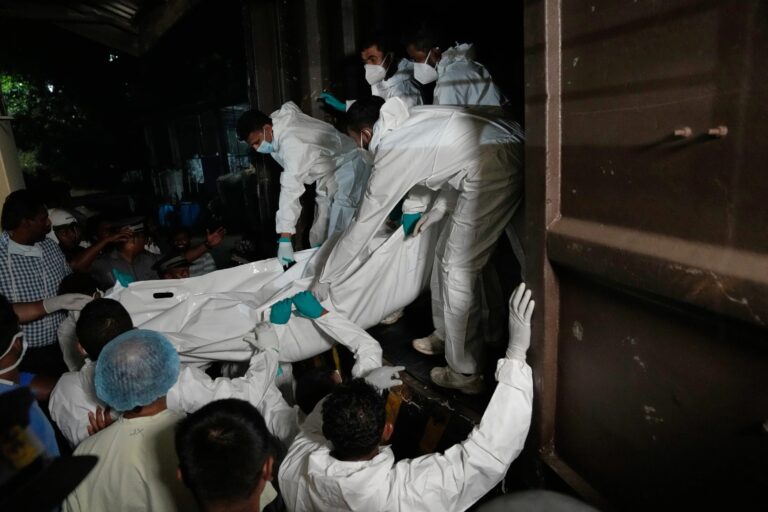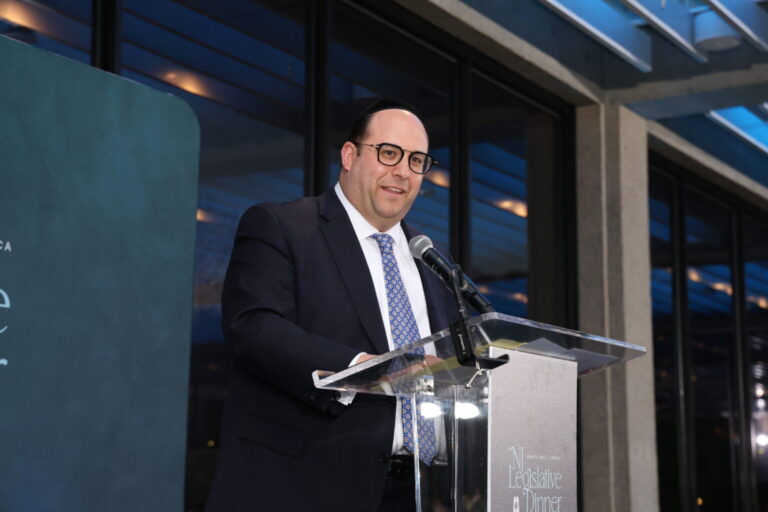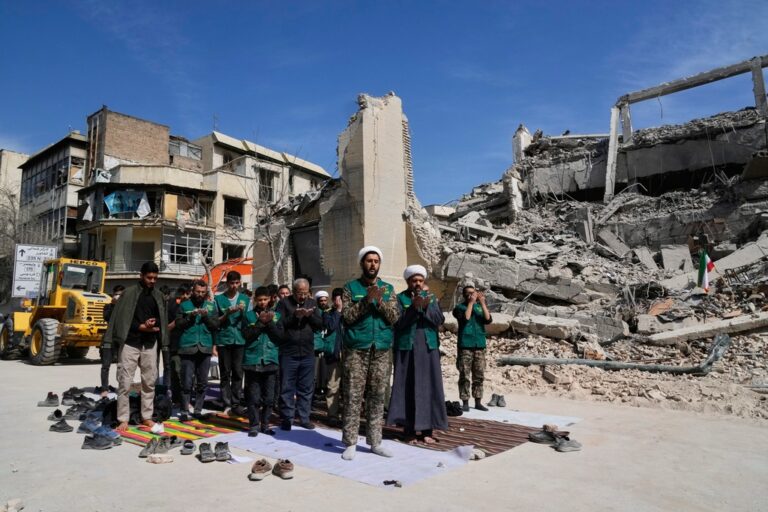Reciting Borchu and the Berochos
One should say borchu and the berochos out loud so the one’s listening may respond.(84) If the oleh missed saying borchu it is not me’achev.(85) Some say that the oleh should say boruch Hashem ha’mevorech quietly.(86) However, many people do say it out loud, and this seems to be the custom. (87) The reason why the oleh repeats boruch Hashem ha’mevorech � after the tzibbur is to be included with those who are bentched.(88) Some say the bercohos should not be said quietly, and one who did so would have to repeat the berochos.(89) However, l’maseh if the beracha and the borchu were said quietly, one does not have to repeat them.(90) The Sefer Chassidim (91) says one who recites the berochos too low has stolen the mitzvah from the tzibbur. One who forgot to recite the last beracha before kaddish was recited should say the last beracha after kaddish.(92)
After saying boruch Hashem ha’mevorech� we say boruch ata .. asher bochar bonu etc.(93) Even though one has already said this beracha in the morning, it is repeated because of kovod ha’tzibbur.(94) The Aruch Ha’shulchan (95) says the beracha is an expression of thanks to Hashem. One should shake the Torah a bit when one says the words “v’nosson luno es toraso” in the first beracha (96) and asher nosson luno toras emes of the last beracha.(97)
The ba’al koreh should say amen after the beracha of the oleh,(98) and should stretch out his amen for the tzibbur to understand that the laining is about to start and they should pay attention.(99) Some say the tzibbur should answer amen when the oleh says boruch Hashem ha’mevorech �;(100) this does not seem to be the common custom.(101) Some are careful to answer boruch hu u’boruch shemo after the oleh has said the boruch ata Hashem of asher bachur bonu. (102)
One should close the sefer Torah before reciting the last beracha.(103) The Aruch Ha’shulchan says it is proper to close the sefer Torah in between the aliyahs. (104)
Footnotes
(84) Refer to Shulchan Aruch 139:6, Rama, Leush 7, Sharei Ephraim 4:7, Mishnah Berurah 23, 25, Ketzos Ha’shulchan 25:7, Pela Yoetz “sefer” page 32 (old). (85) Rav Poalim 4:8, Be’er Moshe 4:18. (86) Sharei Ephraim 4:6. (87) Elya Rabbah 9, Sharei Ephraim 4:6. (88) Shulchan Aruch 139:7. (89) Shulchan Aruch 139:6. Kaf Ha’chaim 41. Refer to Biur Halacha end of 57. (90) Biur Halacha “v’haberochos,” Aruch Ha’shulchan 17, Vezos Hatorah 64:24:footnote 42, Refer to Elya Rabbah 9. (91) 254, see Sharei Ephraim 4:7. (92) Rivevos Ephraim 3:95:3. (93) Shulchan Aruch 139:8, Levush 7. (94) Magen Avraham 5, Mishnah Berurhah 15. See Aruch Ha’shulchan 9. Refer to Pri Megadim Eishel Avraham beg of 135 why we do not say v’tzivanu by this beracha. See Yalkut Yosef 139:footnote 18. (95) 139:10. (96) Magen Avraham 139:12, Sharei Ephraim 4:4, Kaf Ha’chaim 139:26. (97) Aruch Ha’shulchan 139:14. This is not me’achev. The shaking here refers to lifting the sefer Torah a little by lifting the atzei chaim that one is holding (Aruch Ha’shulchan 139:14). The Sefardim do not have this minhag (Kaf Ha’chaim 139:26, Halacha Berurah 139:18). The Aruch Ha’shulchan 16 says the reason for this last beracha is because we are only zocheh to chai olom through the Torah. Therefore, after the learning which is the laining we say this beracha. (98) Mishnah Berurah 141:17. If the ba’al koreh says amen after his own beracha when receiving an aliyah he does not have to repeat the beracha (Shevet Ha’Levi 8:92:2). (99) Sharei Ephraim 4:8, Mishnah Berurah ibid. (100) Magen Avraham 66:6, Sharei Ephraim 4:6, Mishnah Berurah 57:4 (101) Aruch Ha’shulchan 66:8, Rivevos Ephraim 6:63:7. Refer to Pri Megadim Eishel Avraham 57:1 says if one wants he may answer. (102) Rivevos Ephraim 7:page 451. (103) Shulchan Aruch 139:4, Sharei Ephraim 4:21, see 24, Mishnah Berurah 20, Halacha Berurah 139:8. (104) 139:16.
Copyright 2010 Halachically Speaking
Halachically Speaking is a bi-weekly publication compiled by Rabbi Moishe Dovid Lebovits, a former chaver kollel of Yeshiva Torah Voda’ath and a musmach of Horav Yisroel Belsky, shlit”a. Rabbi Lebovits currently works as a Rabbinical Administrator for Kof-K Kosher Superivison.
Each issue reviews a different area of contemporary halacha with an emphasis
on practical applications of the principles discussed. Significant time is
spent ensuring the inclusion of all relevant shittos on each topic, as well
as the psak of Horav Yisroel Belsky, shlita on current issues. Detailed
footnotes are provided for further study.
For a FREE weekly email subscription to Halachically Speaking, please send your
email address to [email protected].
Halachically Speaking is sent to email subscribers around the globe. Your generous sponsorship will enable us to expand the scope of this project. For more information on sponsorship opportunities please call: 718.744.4360.
Please note that these articles are back issues only.
Click HERE to read the archives.
(YWN Desk – NYC)










